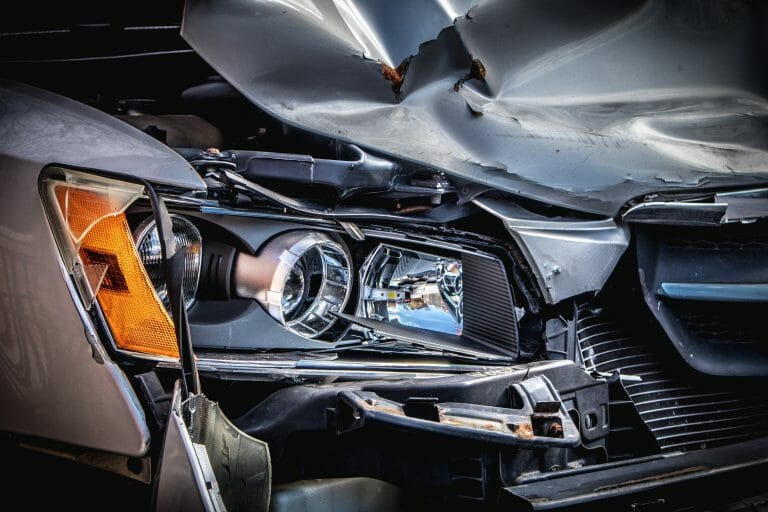Self-driving cars are becoming more common on Florida roads, creating new challenges in car accident claims. These vehicles rely on complex technology like cameras and sensors, shifting the focus of liability from human drivers to software, manufacturers, or service providers. As a result, who is responsible in an accident involving a self-driving car is often more complicated than traditional claims.
The rise of autonomous vehicles demands changes in insurance policies and legal frameworks, especially in areas where these cars are frequently used. Florida’s evolving laws aim to address these shifts, but determining fault frequently involves navigating technical details and understanding new regulations.
Overview of Self-Driving Cars and Florida Laws
Self-driving cars in Florida are regulated with specific legal definitions, insurance requirements, and operational standards. The state has enacted legislation to facilitate the use of autonomous vehicles, aiming to balance innovation and safety.
Definition and Classification of Self-Driving Vehicles
Florida law classifies self-driving cars as “autonomous vehicles” or “automated motor vehicles.” These are vehicles capable of navigating and operating without human control or intervention.
The law defines levels of autonomy, but most discussion centers on fully autonomous cars that require no human driver. This classification distinguishes them from traditional vehicles or those with driver assistance systems.
Current Adoption Rates in Florida
Although fully autonomous vehicles are not yet widespread, Florida is a leading state in their deployment and testing. Cities like Sarasota and Bradenton have seen an increase in autonomous vehicle activity, mainly through pilot programs and commercial trials.
The technology has encountered incidents, including at least two reported deaths involving fully autonomous driving modes on Florida highways. Nonetheless, adoption is growing due to favorable regulations and investments by automotive and technology companies.
How Self-Driving Cars Impact Car Accident Claims
Self-driving cars introduce new complexities in car accident claims, especially around who is responsible and how cases are managed. Insurance policies are evolving, while technology plays a critical role in gathering evidence.
Determining Liability in Accidents Involving Self-Driving Cars
Liability in autonomous vehicle accidents is rarely straightforward. It can involve manufacturers, software developers, vehicle owners, or human operators depending on the circumstances. Florida law requires determining if the self-driving system was in control or if the human driver intervened.
Injured parties must often prove whether the accident was caused by a system malfunction, improper maintenance, or driver error. Fault can be shared, leading to complex comparative negligence analyses. Courts may examine manufacturer recalls, software updates, and system logs to assign responsibility.
Changes in Insurance Policies and Coverage
Insurance policies for self-driving cars differ widely from traditional coverage. Some insurers offer specialized policies covering software failures, cybersecurity risks, and liability linked to autonomous control. Florida drivers may see higher premiums or new coverage categories to address these risks.
Coverage often shifts toward product liability insurance held by manufacturers rather than personal auto insurance. This shift affects how injured in a car accident plaintiffs pursue compensation. Policyholders should review terms to understand coverage limits related to autonomous features and potential gaps in protection.
Role of Technology and Data in Claims
Data from self-driving vehicles is essential in determining fault. Event data recorders, sensor logs, and AI decision-making processes provide detailed information about vehicle behavior before, during, and after an accident.
This technology can clarify facts but may require expert analysis to interpret. Injured parties must preserve this data promptly to support claims, as it can be critical evidence in disputes over liability or damages.
Common Scenarios for Legal Disputes
Legal disputes often arise in cases involving technology failures, software errors, or human-machine handoff errors. Injured individuals may face challenges proving whether the autonomous system or human driver acted negligently.
Disagreements over data access, privacy, and the reliability of autonomous systems frequently complicate claims. Additionally, liability disputes may involve multiple parties, such as parts suppliers, software developers, and vehicle owners, creating overlapping responsibility issues.
Legal Rights and Challenges for Accident Victims
Accident victims in Florida face new complexities when pursuing claims involving self-driving cars. They must navigate unfamiliar legal territory, including identifying liable parties and meeting legal deadlines.
Filing an Injury Claim Against Manufacturers
In many self-driving car accidents, liability may extend beyond human drivers to manufacturers. Victims must determine if the vehicle’s autonomous system or software was defective. This often requires expert analysis to link the injury to a product malfunction or design flaw.
Claims against manufacturers typically involve product liability laws rather than traditional negligence. Florida law allows injured parties to sue for defective design, manufacturing defects, or inadequate warnings. Gathering and preserving vehicle data logs is crucial to support these claims.
Victims should work with attorneys familiar with autonomous technology to analyze accident evidence thoroughly. Doral car accident lawyers experienced in these cases can ensure manufacturers are properly investigated and held accountable if responsible.
Proving Negligence Versus Product Defect
Establishing fault in autonomous vehicle accidents involves distinguishing between negligence and product defects. Negligence claims target human error—such as failure to supervise or intervene—while product defect claims focus on system flaws.
To prove negligence, the injured party must show that a person responsible for the car’s operation failed a duty of care. In contrast, product defect claims require demonstrating that a design or software failure caused the crash, regardless of driver behavior.
This distinction affects which parties are liable; manufacturers face product liability, while drivers or supervisors might be liable for negligence.
Statute of Limitations Considerations
Florida’s statute of limitations for personal injury claims generally allows victims four years from the accident date to file a lawsuit. However, self-driving car cases may involve complex timelines due to investigation and discovery challenges.
Victims should begin legal consultation promptly, as delays in uncovering product defects or responsible parties can reduce available time to act. Courts may allow some flexibility, but this is uncertain and case-dependent.
Doral car accident lawyers advise injured individuals to document all evidence early and preserve vehicle data to avoid unnecessary legal hurdles. Timely filing is critical to preserving the right to compensation in these evolving cases.




